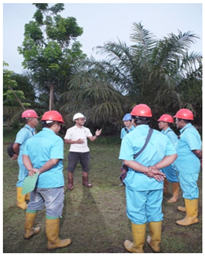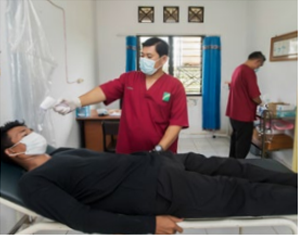Search
Search
We provide an environment that positively contributes to the livelihoods of our employees and our local communities
100% of our sites have now set up SMK3 (Sistem Manajemen Keselamatan dan Kesehatan Kerja), the Indonesian Occupational Health and Safety standard. 60 sites achieved SMK3 gold certification.


IndoAgri provides employment to more than 52,000 people in Indonesia, where more than half of our employees are based in Sumatra and Kalimantan.
We revisited our Labor Policy that details the systems and processes we have in place to safeguard human rights across our operation.
Our commitment to responsible employment is found in IndoAgri's Sustainable Agriculture Policy. This, along with our Values, drives us to respect labour rights of all, to prohibit forced and child labour, to protect freedom of association and collective bargaining, and to promote diversity and equal employment, for example.
The well-being of our employees is crucial to our business productivity. Through our collaboration with local governments and hospitals, we provide free access to essential medical support, facilities and infrastructure for the people living on our estates.
We operated 189 medical clinics on our plantations in 2022
As an agricultural business with operations in rural Indonesia, our business plays a crucial role in helping improve the economic income and livelihoods of the rural Indonesian communities. The outcome we would like to achieve are improved livelihoods and increased resilence for our farmers and suppliers, communities and families.
Besides formal employment, we actively collaborate with the local communities through our Solidarity Programme which aims to improve the quality of life in our nucleus and plasma estates.
We have initiated many community development activities through our Solidarity Programme, which seeks to improve the quality of life in the estates through capacity building, education and financial support.
To tailor our community programmes to the needs of each community and estate, we have started conducting Social Impact assessments through an external party at each of our estates and factories. We consider factors such as the cultural background, literacy rate, living condition and economic situation of the local community before tailoring a programme that suits the developmental need.
Over the years, we have provided support to our local communities in the following areas:
Details of the programme are available at www.simp.co.id/CSR/CSR.aspx.